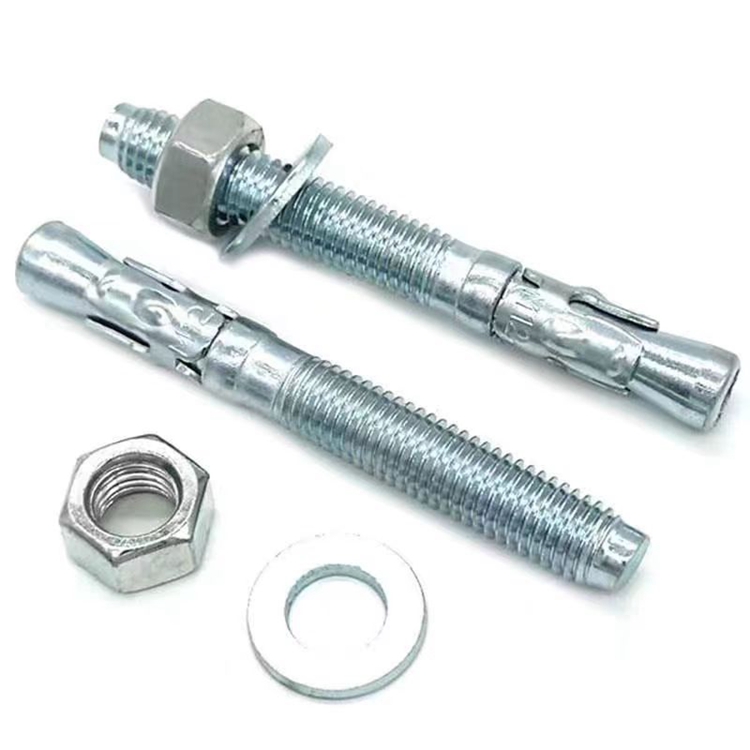Thick Flat Washers for Enhanced Load Distribution and Structural Support in Various Applications
सितम्बर . 23, 2024 23:43 Back to list
Thick Flat Washers for Enhanced Load Distribution and Structural Support in Various Applications
Understanding Thick Flat Washers Their Role and Importance in Mechanical Assemblies
In the world of mechanics and engineering, every component plays a critical role in ensuring the efficiency, safety, and reliability of machines and structures. One often overlooked component is the flat washer, particularly the thick flat washer. Though they may not seem significant at first glance, these washers are essential for a wide range of applications, providing strength, stability, and support in mechanical assemblies.
What is a Thick Flat Washer?
A thick flat washer is a disc-shaped fastener with a hole in the center, designed to distribute the load of a threaded fastener, such as a bolt or a screw. The thickness of the washer is greater than that of standard flat washers, which gives it additional strength and resistance against deformation. Thick flat washers are typically made from materials such as steel, stainless steel, bronze, or plastic, chosen based on the specific needs of the application, including factors such as corrosion resistance, strength, and weight.
Functions and Benefits
The primary function of a thick flat washer is to spread the load over a larger surface area. When a bolt or screw is tightened, it exerts a force that can create a considerable amount of stress at the point of contact with the material being fastened. A thick flat washer helps to distribute this force, reducing the risk of damage to the material and preventing the fastener from loosening over time. This is particularly important in applications where vibration or movement is present, such as in automotive, aerospace, and heavy machinery.
In addition to load distribution, thick flat washers offer other benefits
1. Protection They provide a protective barrier between the fastener and the surface of the material, minimizing wear and tear. 2. Alignment By creating a stable surface, thick flat washers help in aligning the components being fastened, enhancing overall assembly integrity. 3. Prevention of Material Damage The larger surface area of thick flat washers can prevent the development of stress concentrators that could lead to cracking or deformation of the base material.
thick flat washers

Applications of Thick Flat Washers
Thick flat washers are used in a multitude of applications across different industries. Some common use cases include
- Automotive Industry They are frequently used in cars and trucks to secure components such as engine parts, suspensions, and transmissions, where strength and durability are paramount. - Construction In structural applications such as bridges or buildings, thick flat washers are essential in connections where high tension is required. - Aerospace Due to the rigorous demands of flight, thick flat washers are used in aircraft assembly to ensure that components remain securely fastened under extreme conditions. - Heavy Machinery In equipment such as cranes and excavation machines, thick flat washers provide crucial support and stability to heavy loads.
Selection Considerations
When selecting thick flat washers, several factors need to be considered
- Material Depending on the environment (e.g., exposure to moisture, chemicals, or high temperatures), the choice of material can greatly impact performance. - Dimensions The diameter and thickness should match the requirements of the application. Oversized washers can lead to unnecessary weight, while undersized washers may not provide adequate support. - Finish A protective finish (such as galvanization or plating) can enhance corrosion resistance and extend the lifespan of the washers.
Conclusion
Thick flat washers may seem like minor components in mechanical assemblies, but their contribution to the integrity and reliability of various applications cannot be overstated. By effectively distributing loads, providing protection, and preventing damage, these washers play a pivotal role in ensuring safe and efficient operations across numerous industries. Understanding their importance helps engineers and manufacturers make informed decisions, leading to more robust and reliable designs. Ultimately, in the complex world of engineering, even the simplest components can have a profound impact on overall performance and safety.
Latest news
-
Premium Phosphated Drywall Screws Supplier & Manufacturer Solutions
NewsJul.26,2025
-
Top Metric Wood Screw Companies – Reliable Manufacturer & Supplier
NewsJul.25,2025
-
Reliable Axle Nuts Supplier - Quality Manufacturing & Export Services
NewsJul.24,2025
-
Top Wire Bolts Suppliers & Exporters - Quality Fasteners Factory
NewsJul.23,2025
-
Reliable Wire Bolts Company & Supplier for Construction Solutions
NewsJul.22,2025
-
Premium Spike Wheel Nuts Supplier | Durable Quality
NewsJul.21,2025
